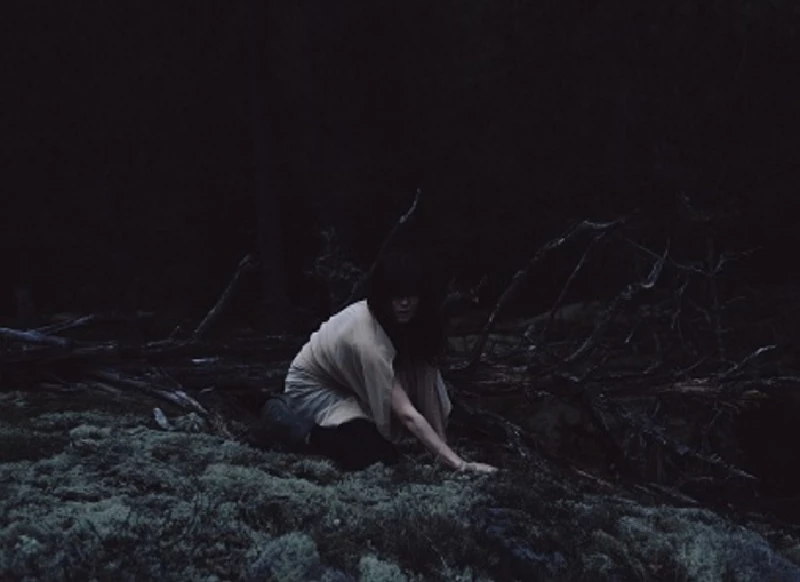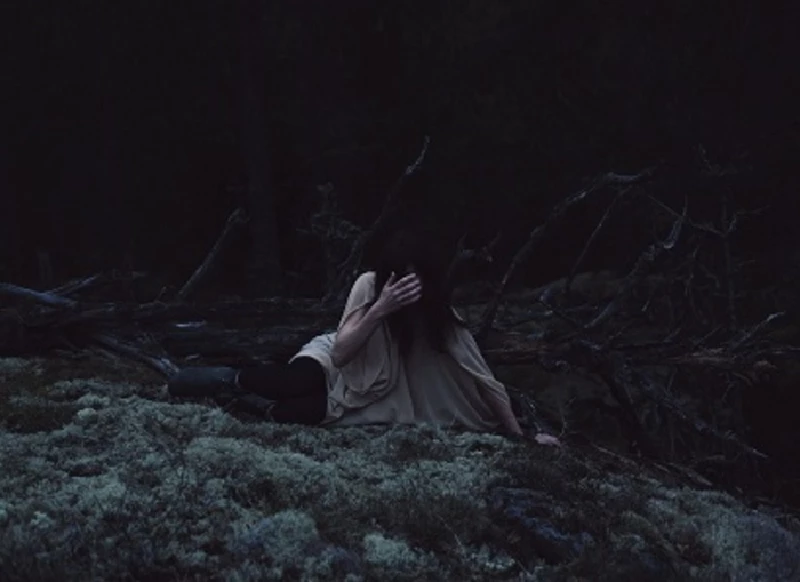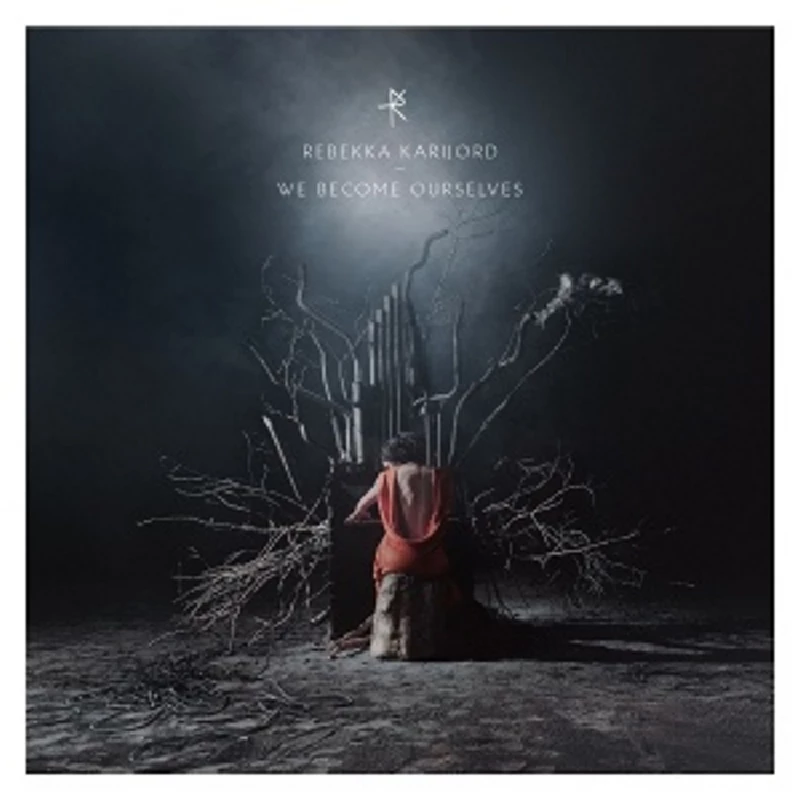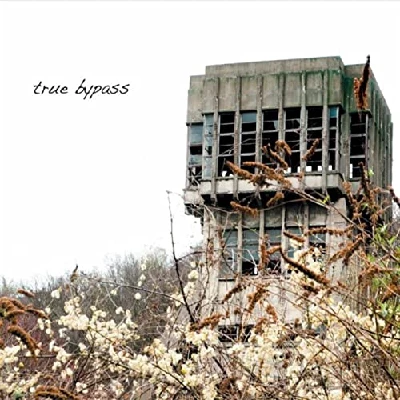Rebekka Karijord - Interview
by Lisa Torem
published: 29 / 10 / 2012

intro
Lisa Torem speaks to Norwegian-born singer-songwriter Rebekka Karijord about her critically acclaimed and haunting second album, 'We Become Ourselves'
What is so striking about Norwegian-born Rebekka Karijord’s material is that what she creates is not just organic, but utterly devoid of pretence. On her debut, ‘The Noble Art of Letting Go’, her crystal-clear voice and appealing story lines lent themselves to visually superb videos, which is not surprising given that she scored films for several decades before unleashing her songwriting muse. On ‘Wear It Like a Crown,’ she confided, “I don’t know where this fear comes from,” while pondering her existence amidst a lovely forest, seated next to a sad, reflective girl. In so much of Karijord’s visual and sonic work, she holds back something sacred. Maybe it’s a thought, a wish, a shadow or a resolving chord, but it’s that exquisite tension that, ironically, pulls you in. That gift and her choice of what’s important – in this case, the soft natural sunlight that streams through the nature preserve - says much about her awareness of the simple joys that surround her. On her second album, she also nurtures her gentle nature. With a truly haunting voice, sharp and diverse instrumental skills and an uncanny way of reaching deeply into her soul, she has produced one of the best albums of the year, ‘We Become Ourselves’. PB: I really enjoyed ‘We Become Ourselves'. I am amazed, though, that a sophisticated album like this only took eight days to record. What was the plan and did it go smoothly? RK: Thanks a lot, I'm glad you like it! Actually, I recorded the whole album once, during six weeks, threw it away and decided to re-record it live in the studio with my band. So the songs and arrangements were pretty thought through when we went in for the second round. It was a difficult decision to throw away so many weeks of work, but I'm really glad I was daring enough to do it. The thematics and stories needed the raw expression a live recording can give, with all its flaws and edge and nerves. After the first eight days, I worked another month or so before mixing, adding strings and choir to the recordings PB: You have a strong background in scoring films. Has that experience impacted your songwriting? RK: Yeah, definitely. I think it has given me a chance to experiment with sound and arrangements, and it has made me bolder when recording my own records. PB: Have you had formal voice or instrumental training or were you self-taught? RK: I had voice training when I was a teenager, but I never liked it, I must admit. It made me search for a voice outside myself, and compare myself, instead of accepting the voice I have, which I now do. It has taken me a long time to find and love my voice PB: Who were some of your early inspirations? RK: My childhood favourites were Patti Smith, Buffy Sainte-Marie, Sheila Chandra, Whitney Houston, Björk, Enya...And my mum’s songs and folk tales from Northern Norway. PB: On the album, did you overdub your own harmonies or did you utilize other vocalists? RK: I did all the dubbing of my own voice myself, but then I added sopranos from The Stockholm Boys Choir and a 12 piece male choir. PB: You have made some choices on the album, which make it really soar, like using a male chorus and playing some primitive rhythms. What inspired some of these ideas and who made the ultimate production decisions? RK: I had the last word with the production, and the choir arrangements are mine, but I worked with amazing musicians and producer Tobias Fröberg, who was my precious sidekick on this album. The drum sound is his speciality - he's amazing with drums. I like giving the musicians a lot of space when recording, as I believe several brains work better than one. So it’s kind of extremely democratic until a certain point, and then we try out everyone’s suggestions. Often I record layers of layers, and end up muting half of it before I send it off to mix. I really challenged myself to keep it sparse and simple on this record, so every instrument and voice stands out. PB: ‘Save Yourself,’ like many of your songs, has a very powerful message. “You will have to save yourself when the morning rain hits the window pane/When there’s no one left to help, you’ll have to save yourself.” Was this song created because of your own personal struggles? RK: I always write out of my own experience, I don't know how to do it any other way. But that song in particular is about a person I know. Probably it’s about myself as well. We all have self pity and want to curl up as small children at times, and have someone else save us. It just never works in the long run … PB: The use of piano on the album is quite beautiful, yet uncomplicated. What comes first, the piano passage, the lyrics or the melody when you write using this instrument? RK: The piano has been my instrument since I was little, so I feel very familiar with it. On this album the piano is almost more an effect than a driving force, as it was on my last record. I got a little tired of all the traditional references with a female singer and a piano, and wanted to remove myself a bit from that. So I turned to different organs - Hammond, Wurlitzer and even a real, huge church organ. PB: After listening to these lyrics in ‘Your Love’, - “All is held by all, none is held by none/All is lost and found by everyone” - I couldn’t help but wonder if a particular philosophy or school of spirituality motivates you. Is that the case? RK: That line is inspired by a Norwegian poet called Stein Mehren. I love the idea that everything is a huge mechanism giving and taking, leaning and lifting. It's an adaptable thought both globally, in nature, but also in human relations. ‘Your Love’ is quite an erotic song to me. It’s about the euphoria in the beginning of a relationship, the chemical, sexual cocktail. You kind of feel everything is possible. You're being lifted. It’s really a powerful force. PB: Will you follow-up ‘We Become Ourselves’ in the near future and, if so, how do you envision the next project? RK: Yes, I’m going to write an album where I work with female voices. “We Become Ourselves” is a love album, concerning masculinity, in dialog with someone - the next album will be more of a soliloquy about femininity, and myself I guess, since I happen to be a woman. I also have some very interesting women in my family history. My grandma was the first female Norwegian welder on an oil platform, for example! PB: Do you see yourself co-writing at some point or are you satisfied with composing solo? RK: I have been co-writing, and enjoy that as well. But it's hard sitting in the same room as someone else, as it’s kind of a very fragile process for me to write. I have to be able to make weird noises and talk loud and walk around and stuff. PB: Artists like Monet used haystacks for inspiration. Does nature play a strong role in what and when you create? Are you more liable to write during a sunny day or a grey, gloomy day? RK: I'm very inspired by nature. This album was written in a nature reservoir outside Stockholm, by the water, with huge oaks and an eagle family as neighbours. I can write on both sunny and gloomy days, but it’s easier to crawl into the dark studio dungeon if it’s a rainy day, I guess. PB: What are your touring plans for the end of this year and 2013? RK: We are touring Europe this fall, and then I'm doing my first UK headline tour in January, which I am super excited about! PB: Thank you.
Band Links:-
https://www.facebook.com/RebekkaKarijordhttp://rebekkakarijord.com/
https://twitter.com/rebekkakarijord
https://instagram.com/rebekkakarijord
Picture Gallery:-


reviews |
|
Music for Film and Theatre (2014) |

|
| Compelling collection of ambient tracks for films, plays and dance performances by Norwegian-born but Swedish-based composer, Rebekka Karijold |
| We Become Ourselves (2012) |
most viewed articles
current edition
Spear Of Destiny - InterviewRobert Forster - Interview
Fiona Hutchings - Interview
When Rivers Meet - Waterfront, Norwich, 29/5/2025
Carl Ewens - David Bowie 1964 to 1982 On Track: Every Album, Every Song
Brian Wilson - Ten Songs That Made Me Love...
Chris Wade - Interview
Pistol Daisys - Waterfront, Norwich, 29/5/2025
Credits - ARC, Liverpool, 17/5.2025
Nils Petter Molvaer - El Molino, Barcelona, 24/4/2025
previous editions
Heavenly - P.U.N.K. Girl EPBarrie Barlow - Interview
Boomtown Rats - Ten Songs That Made Me Love....
Dwina Gibb - Interview
Oasis - Oasis, Earl's Court, London, 1995
Sound - Interview with Bi Marshall Part 1
Beautiful South - Ten Songs That Made Me Love...
Trudie Myerscough-Harris - Interview
Manic Street Preachers - (Gig of a Lifetime) Millennium Stadium, Cardiff, December 1999
Serge Gainsbourg - Ten Songs That Made Me Love...
most viewed reviews
current edition
Peter Doolan - I Am a Tree Rooted to the Spot and a Snake Moves Around Me,in a CircleGarbage - Let All That We Imagine Be The Light
Vinny Peculiar - Things Too Long Left Unsaid
Little Simz - Lotus
John McKay - Sixes and #Sevens
Suzanne Vega - Flying With Angels
HAIM - I Quit
Vultures - Liz Kershaw Session 16.06.88
Billy Nomates - Metalhorse
Eddie Chacon - Lay Low
Pennyblackmusic Regular Contributors
Adrian Janes
Amanda J. Window
Andrew Twambley
Anthony Dhanendran
Benjamin Howarth
Cila Warncke
Daniel Cressey
Darren Aston
Dastardly
Dave Goodwin
Denzil Watson
Dominic B. Simpson
Eoghan Lyng
Fiona Hutchings
Harry Sherriff
Helen Tipping
Jamie Rowland
John Clarkson
Julie Cruickshank
Kimberly Bright
Lisa Torem
Maarten Schiethart